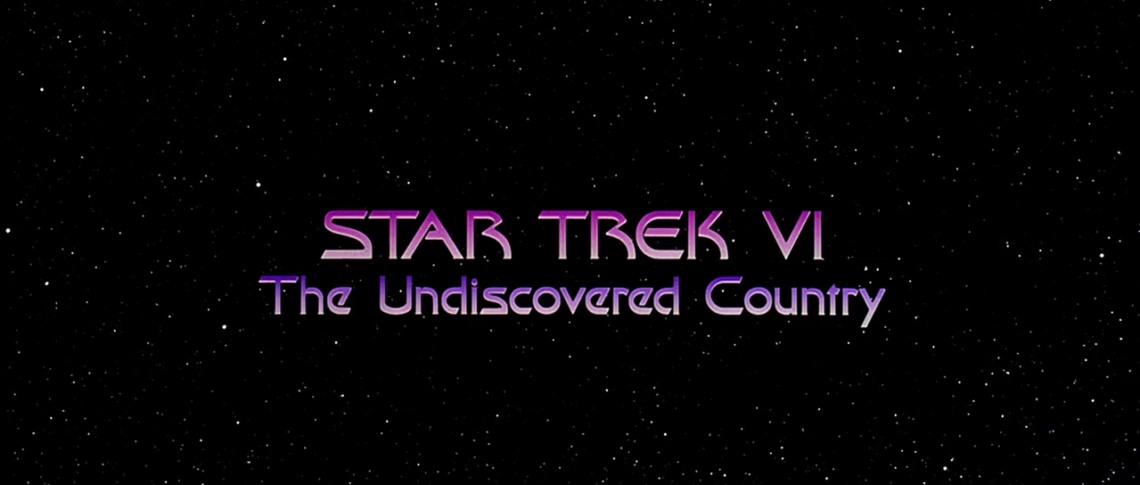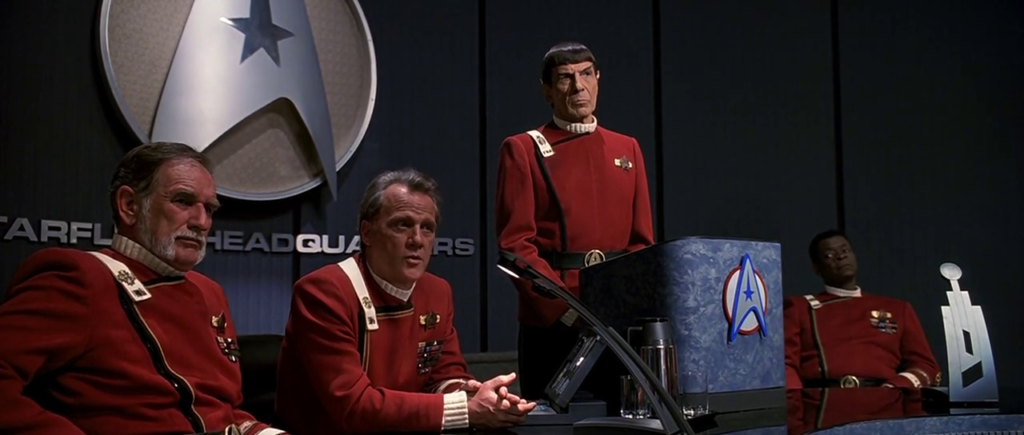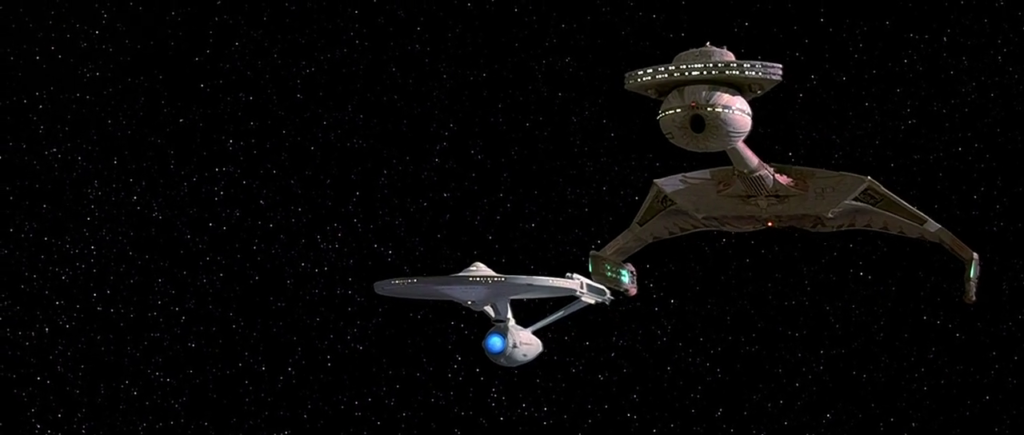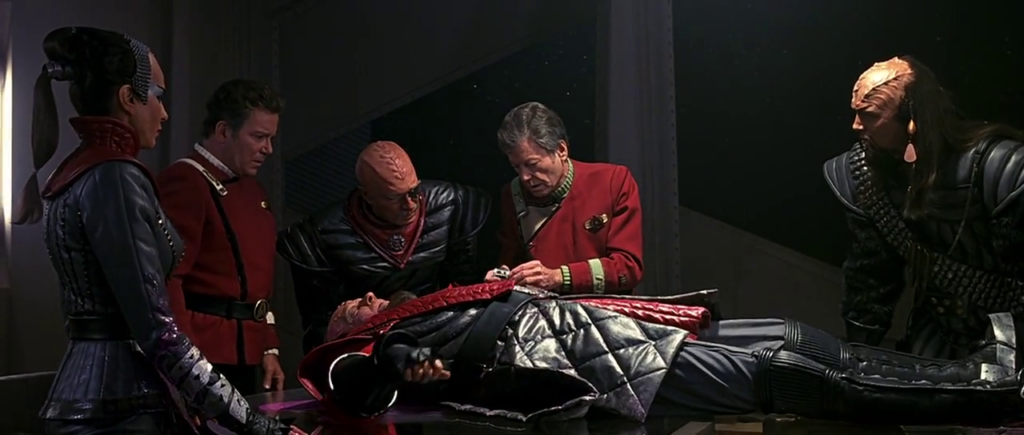-
#477 – Star Trek VI: The Undiscovered Country (1991)
Star Trek VI: The Undiscovered Country (1991)
Film review #477
Director: Nicholas Meyer
SYNOPSIS: Following an explosion on the Klingon moon of Praxis, the Federation and Klingon Empire move for peace talks. This sits uncomfortably with many people on both sides, including Captain Kirk himself, who still blames the Klingons for the death of his son. Kirk and the Enterprise are sent to meet the Klingon chancellor Gorkon to escort him to the peace conference, but Gorkon is assassinated, and all the evidence points to someone onboard the Enterprise is responsible. Kirk and Dr. McCoy are sentenced to hard labour, and Spock and the rest of the crew must find evidence to exonerate them and rescue their captain before full scale war breaks out between the Federation and the Klingon Empire.
THOUGHTS/ANALYSIS: Star Trek VI: The Undiscovered Country is a 1991 sci-fi film, and the sixth and final film featuring the cast of the original TV series. The film opens up with now Captain Sulu on the U.S.S. Excelsior, witnessing a huge explosion on the Klingon moon of Praxis. The moon was the source of the Klingon Empire’s power, and the resulting explosion will also deplete the Klingon homeworld’s ozone layer within the next fifty years. As a result, the Klingon’s offer peace talks with the Federation to resolve the long-standing war between the two. However, there are those on both sides who are still sceptical of any attempt of peace, including Captain Kirk, who still blames the Klingons for the death of his son. Spock volunteers Kirk to meet Klingon Chancellor Gorkon in the neutral zone, and escort him to peace talks on Earth, but Kirk is still less than pleased about the whole situation. The film has a pretty solid story, and it’s theme is explored through both the setting and the characters rather well. The story is obviously rooted in the time of the end of the cold war, and the uncertainty of the future now that these opposing sides are no longer enemies. Like much sci-fi, it’s reflection of contemporary affairs in the future allows the possibility to explore these affairs without being chained to “real” people or places. The story gets underway quite fast, and the crew are out of spacedock in about twenty minutes, which is nice. The film on the whole does have an operatic feel, and there are many scenes of protracted and extensive dialogue, with a lot of quoting classical literature between the parties. The awkward diplomacy attempts to create a tense atmosphere between the characters, and for the most part it works, but it could certainly feel a bit overblown and meaningless to viewers who can’t follow all of these quotes. That said, there’s a fair amount of more direct action and intrigue in the story too, so there’s plenty of substance throughout the film that maintains a good sense of pacing and entertainment.
Being the final film starring the original crew, The Undiscovered Country makes an effort to give the characters a good send off and resolve any loose threads. Kirk dealing with the loss of his son and blaming the Klingons is one such thread, but one that wasn’t really mentioned in the previous two films (which were a bit more comedic in nature, so it probably didn’t fit the tone). The rest of the crew are close to retirement, and so the scene is set as this being their final mission before they hand over to a new generation: this again being reflected in the story that forces the older characters to accept a new era. There’s a solid performance all-round as the characters engage in heavy dialogue, but also some low-key funny moments that aren’t shoved in your face like in Star Trek V. Lt. Valeris as the new character is fine, but her arc doesn’t really come to a conclusion, and her motivations by the end of the film are a bit vague. The same can be said of everyone who is trying to stop the peace talks: why do they want to continue as they are? Why are they working together? That part of things doesn’t tie up quite as neatly as it needs to. General Chang as the villain is pretty cool, but the fact that he speaks most of the time in classic literature quotes can get a bit distracting. Apparently some of the actors were unhappy with their characterisations: Shatner thought Kirk was portrayed as too prejudiced, and Michelle Nichols refused to say lines that alluded to racist undertones regarding the Klingons. With Kirk, I can totally see the problem with Kirk’s character: his hatred of Klingons does come a bit out of nowhere in the sense it isn’t really brought up in the two previous films, but you can also see why he would hate them after they killed his son. The drama-heavy tone of the film I suppose necessitated exaggerating these elements, and it definitely provides a character arc that Kirk works through to the other side to provide a message of hope. Gene Roddenberry, the creator of Star Trek, apparently also did not like these prejudices, as his vision of the future that Star Trek provides is one where such prejudices have been overcome. While I think some of the prejudices and attitudes the film presents are a bit out-of-character, I don’t think they disrupt the vision that Star Trek provides, and it definitely does a good job of reflecting contemporary attitudes and how people can struggle to deal with a changing world.
This film had a tough time getting made: after the poor reception of Star Trek V, the budget for this film was slashed, as it was seen as very much a risky venture. Scripts about a prequel, a film which essentially killed off the cast, and a crossover with Kirk meeting Picard (which eventually became Star Trek Generations) were proposed, but eventually the story was developed by Leonard Nimoy and Nicholas Meyer, who wrote Star Trek II. Given the tight budget, there’s a lot of sets and scenes set aboard the ship in low-light corridors and rooms to hide the lack of detail. This isn’t too much of a bad thing, as the dramatic lighting supports the drama-heavy script. There isn’t a lot of variety in the settings due to the aforementioned budget, but it makes do. As a result of all this, it definitely feels like an episode of the TV series, with most of the action being set on a ship, the dialogue heavy scenes, and the even pacing. With this in mind, despite a number of problems, The Undiscovered Country feels distinctly Star Trek, and provides a solid final outing for the beloved ship and crew. It is a bit overblown in it’s dialogue sometimes, and the prejudices and attitudes may seem a bit over-the-top to better serve the story, but at it’s heart it has a strong message, and ends the adventures of the original crew on a high note of hope.










